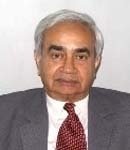The Hijacking of IC-814
14 Feb, 2000 · 306
PR Chari reckons, among other things, that unclarified roles for the NSA and the Cabinet Secretary within the Crisis Management Group costed India dearly during the hijacking crisis
The one-week ordeal of the hostages, starting on Christmas Eve and concluding on New Year's Eve, ended with their exchange for three captured militants. Its reverberations, however, will be heard for a long time. The BJP's boast of making India a "hard" state was shown to be empty, and the Prime Minister's claim of showing "zero tolerance" towards terrorism has become something of a joke.
Whether the aircraft could have been immobilized in Amritsar will long be debated. But why the government yielded so precipitately in Kandahar to release the three militants needs further elucidation. Was it so persuaded by the foreign powers whose nationals were among the hostages? Ostensibly, the Taliban pressured the hijackers and the Government of India to reach a settlement by Friday the 31st; otherwise they threatened to order the aircraft to leave Kandahar. This was a bluff. Where could the aircraft have gone? The hijackers' threats to kill the passengers and blow up the aircraft was another bluff, although one can never be sure about such matters. In the event, the Government of India caved in, and the world was treated to the spectacle of its Foreign Minister reaching Kandahar with the militants to effect their exchange for the passengers. When the chips are down, the BJP Government revealed, it was no different from its predecessors.
Much attention has focussed on the "humiliation" aspect of this entire episode. Little thought has been bestowed on what would be done when further such incidents take place by the emboldened terrorists in future. Suicide attacks by extremists upon the security forces have increased. It could be expected that the latter would exhibit greater ruthlessness in their future anti-terrorist operations--a kind of "no-prisoners" syndrome could manifest itself. Bombing incidents on both sides of the border could increase. Since the militants and hijackers have re-surfaced in Pakistan, it could also be expected that Indo-Pak relations would get further embittered. All these events seem likely to unfold with the inevitability of a Greek tragedy.
What are the lessons that could be drawn from this hijacking episode?
First, a clear policy articulation seems essential to clarify that hostages will not be swapped for militants and detainees in future. Such declarations made by the United States, United Kingdom and Israel would be instructive in this regard.
Second, the lines of authority in such crises must be clarified. Both the Cabinet Secretary, who heads the Crisis Management Group (CMG), and the ubiquitous National Security Adviser were issuing parallel instructions to the district and airport authorities in Amritsar, which must have confused them. What is the National Security Adviser's position? Is he part of the CMG? Or an extraordinary member? Or an appellate authority?
Third, dealing with hijackers, who are abnormal persons in a high state of excitement and under considerable tensions requires the skills of, among others, clinical psychologists. The negotiating team dispatched to Kandahar consisted of Joint-Secretary level officers from several Ministries; it is dubious if they had the professional skills to deal with the hijackers.
Fourth, it needs greater understanding that incidents of this nature have become media events. The Government's failure to provide accurate or timely information on the progress of the negotiations led to wild speculations with the concern of the relatives being played out before TV cameras. Inevitably, pressures were mounted on the authorities, which catalyzed the humiliating decision taken.
Fifth, the ease with which Indo-Pak crises can be generated suggests the need for reticence in making wild allegations. India's accusation that Pakistan had masterminded the hijacking was matched by Pakistan's thesis that India had engineered the incident to denigrate Pakistan. The refusal of the United States to declare Pakistan a terrorist state suggests that no proof, except of a circumstantial kind, has been adduced by India. Strangely enough, the Government has not yet made the intercepts of conversations between the hijackers and their controllers in Pakistan public. It would be in the interests of its credibility to set out the proof available in the form of a White Paper.
Sixth, this crisis forced India to negotiate with the Taliban, which it does not recognize. Is there a distinction to be drawn between different schisms in the Taliban, and derive a more nuanced policy towards Pakistan. The manner in which India, in extremis, sought mediation by the United States to resolve this crisis also casts doubts on India's fetish of bilateralism in foreign relations.
India could learn much from this national humiliation and prepare for the next crisis, which could involve a hijacked bus or kidnapped VIP, not necessarily, an aircraft. India must not emulate the Bourbons, who learnt nothing and forgot othing.


